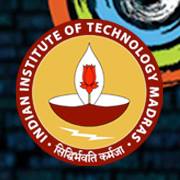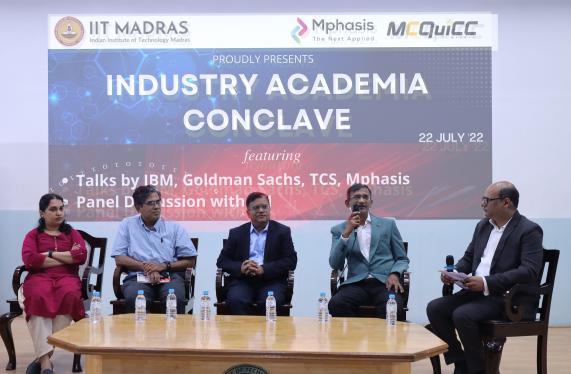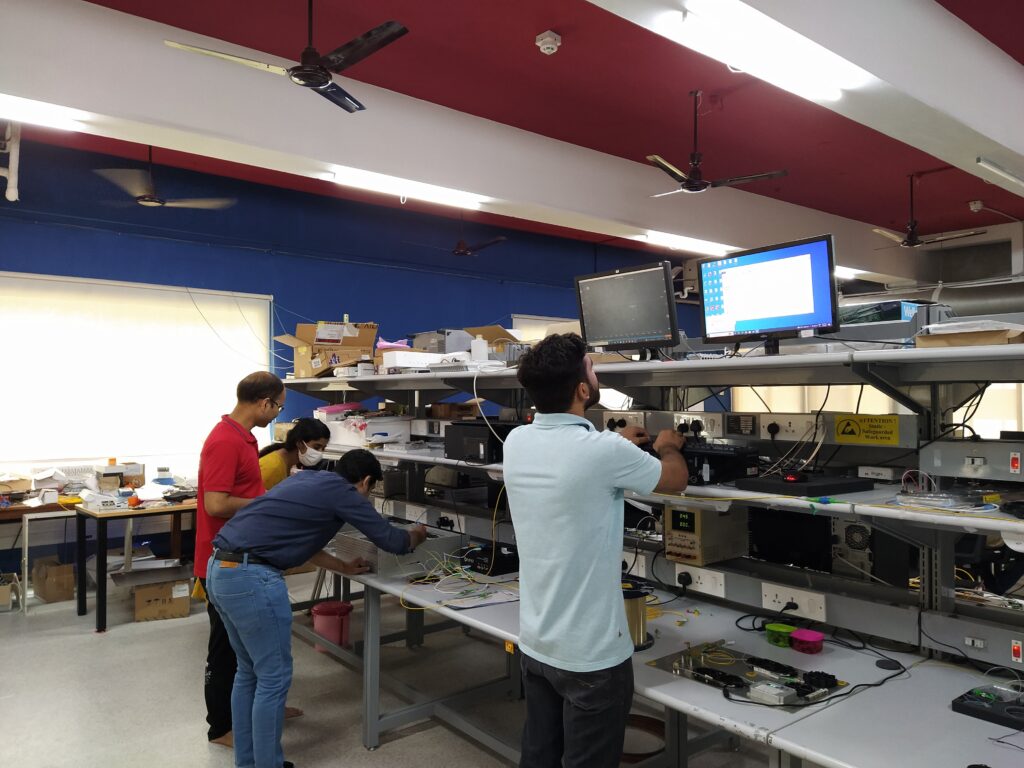
IIT-Madras made news recently for becoming the first institute in India to join IBM’s Quantum Network. However, its quantum-related activities predate the IBM partnership. To get a comprehensive overview, we connected with Dr. Prabha Mandayam, Associate Professor, Department of Physics, IIT Madras and an active researcher in quantum areas. She has the distinction of being an early Ph.D. student specializing in Quantum (before it became part of tech industry jargon) at California Institute of Technology (Caltech).
Q&A with Dr. Prabha Mandayam, Associate Professor, Department of Physics, IIT Madras
What has been some of work that has been going on related to quantum computing at IIT-Madras?
Indeed, IIT Madras has had research groups working on different aspects of quantum science and technologies, for some time now. The photonics group of Prof. Anil Prabhakar in the Department of Electrical Engineering was one of the first to demonstrate a quantum key distribution (QKD) set-up in India.
Prof. Arul Lakshminarayan’s group in the Physics Department has been at the forefront of theoretical research in quantum information science, especially the interplay between entanglement and chaos.
In 2021, IIT Madras formed an interdisciplinary group around quantum computing called “Centre for Quantum Information, Communication and Computing (CQuICC).” What is its charter?
CQuICC was formed in 2021, with a view to bring together different research groups working in the area of quantum science and technologies, under one umbrella, and combine our expertise to tackle some of the challenging problems in the field.

Prabha Mandayam, Anil Prabhakar from IIT-M, Sunil Agarwal and Bharat Trivedi from LTI (Larsen and Turbo Infotech) – one of the sponsors of CQuICC at Industry Academia Event, July 2022. Credit- IIT-Madras
In just the past year, our Center has managed to attract some key partners including MPhasis (IIT-M was awarded a grant for Rs. 21 crores by Mphasis in 2022 for research in quantum technologies), LTI and KLA, further evidence of growing interest in Indian industry towards quantum. There is an increased demand for quantum workshops targeted at upskilling industry workforce and in the last year we have already held such weeklong workshops, with faculty from our Center delivering lectures on quantum algorithms and quantum cryptography to an entirely corporate audience.
We also have faculty and researchers working in related areas like quantum error correction secure quantum communication/quantum networks, quantum tomography, quantum optics and quantum chemistry.
IIT-Madras (recently in September 2022) became the first institution in India to become a member partner in IBM Quantum Network. What are the different areas where IIT-Madras’s collaborates with IBM?
Upskilling and Quantum-Skilled Workforce
Our collaboration with IBM Quantum actually began in the summer of 2021, when we decided to team up to offer an online, introductory course on quantum computing. I teamed up with two researchers (Dr. Anupama Ray and Dr. Sheshashayee Raghunathan) from the IBM Quantum group based in Bengaluru, India, to curate and record a 4-week long course introducing the basic ideas of quantum computing, as well as, the IBM Q platform qiskit, with very little pre-requisites.
We have had two editions of the course so far which has seen over 16,000 registered students.
IBM and IIT Madras also then partnered to provide classroom access to the IBM Q processors for some of the quantum computing courses being offered at IIT Madras, as part of our Masters’ program in Quantum Science and Technologies. This graduate program is in its second year of operation.
Research and Development
This year, we decided to take our partnership to the next level by becoming a part of the IBM Quantum Network. In terms of research, this will provide our faculty and research scholars unprecedented access to state-of-the-art quantum processors and allow us to run “experiments” on them.
Core areas of mutual interest include quantum error correction and error mitigation, quantum algorithms with applications in quantum chemistry, quantum finance, quantum machine learning and quantum simulations.
There seems to be interesting work being done around Quantum Key Distribution (QKD) from IIT Madras. Can you please elaborate?
IIT Madras ran one of the earliest QKD experiments in India. In 2017, IIT Madras also incubated one of the first quantum start-ups in India — QNu Labs, based in Bengaluru — to focus on commercial QKD and QRNG solutions.

IIT-Madras researchers working in the QKD lab. Credit – IIT Madras
Today, we have an active QKD group that is working towards setting up a metro area quantum access network, with faculty/students from physics and electrical engineering taking part in this effort. We have worked on developing novel QKD protocols with secure key rates that sustain over longer distances and which can be implemented over existing fiber-optics networks.
We have also incorporated aspects of queuing and scheduling in characterizing the capacities of such quantum secure networks. Last but not the least, we have demonstrated a differential-phase-encoded QKD scheme over a point-to-point link of 100 km, in the process building our own encoding (Alice) and decoding units (Bob). Our efforts have culminated in a recent demonstration of a QKD link between IIT Madras and a neighbouring Institute.
You were one of the early students to get a Ph.D. in Quantum Information from Caltech in the US – when they had only about 2 students a year specializing in quantum in their graduate program. What has been your journey? What is your personal excitement around Quantum Computing?
I came to IIT Madras for my Masters. My first brush with the fascinating world of quantum happened during the quantum mechanics course where I had an opportunity to reach and talk about the EPR paradox and Bell-CHSH inequality — terms which have become common parlance today, thanks to the 2022 Nobel prize! Subsequently I signed for a Masters project on quantum random walks with Prof. Arul Lakshminarayan. I was by then hooked onto both the physical and mathematical foundations of quantum theory; quantum information/quantum computing was the logical next step!
I got to know of Prof. John Preskill’s lecture notes (which were already online way back in 2003!) through my father, who is a theoretical physicist by training. These lecture notes are truly a masterclass on the subject and convinced me to pursue a PhD in this area. I was fortunate enough to make it to the Caltech physics program, where I indeed had the opportunity to be a part of Institute for Quantum Information (which is now the Institute for Quantum Information and Matter) under the guidance of John Preskill (John Preskill is a featured speaker at Q2B conference – see our story here).
My primary interest for quantum computing and quantum information comes from the fact that it provides us with an opportunity to see quantum physics in action, at a very fundamental level. To me, this field offers a fascinating interplay of mathematics and physics, each guiding the other in turn. Today, of course, there is the excitement of seeing this beautiful theory come alive in practice. As a physicist, it is also exciting to see how the language of quantum computing and quantum information provides us with a new vocabulary with which to understand other areas of physics, from condensed matter physics to cosmology.
India has tremendous intellectual, academic and industry strengths and has leapfrogged in several technology areas. Is Quantum one of those areas where these innate strengths have the potential to come into play?
India has indeed had a long tradition of research in quantum physics, going all the way back Satyendranath Bose and the crucial part his new “statistics” played in the early quantum revolution. The 70s and 80s witnessed the beginnings of a quantum optics and quantum foundations tradition in India thanks to the influence of Prof. EC George Sudarshan. Indeed, Sudarshan’s pioneering work in what is today known as the theory of open quantum systems, has led to the mechanism by which we understand “noise” and “errors” in quantum systems. On the experimental front as well, we have had a strong presence in quantum optics across institutes like the Raman Research Institute, Indian Institute of Science and the Tata Institute of Fundamental Research.
It is therefore no surprise that today we have several strong research groups in quantum science and technologies spread out across several Institutes in the country. We are also starting to see the coming together of engineers and scientists in many of these groups, which gives me the hope that we will soon have a critical mass of “quantum engineers” whose role will perhaps be as important as that of the “quantum scientists” in this second quantum revolution of our times. As I mentioned earlier, we are also starting to see some industry presence in this field as well, so I quite positive that the quantum ecosystem will only continue to grow in strength in the coming years.
Finally, what advice would you give to students wanting to specialize in Quantum Computing?
I would like to maybe start by quoting Nobel Laureate Serge Haroche, who said during his visit to India in 2019, “Quantum physics is (today) trapped between hype and hope.” Yes, today, we are witnessing tremendous excitement around quantum computing, but let this not be the only reason why you decide to pursue this field. It is hard to predict the future of any technology, especially one that is as challenging as quantum computing. While it is certainly a great time to enter the field, make sure that you enter the field knowing full well the challenges as well as the opportunities.
Irrespective of what the future holds for quantum computing from a technology point of view, in my opinion, quantum computing and quantum information is here to stay, both as an engineering discipline as well as a scientific paradigm. So, make sure you get into quantum computing because the underlying science/engineering captures your imagination!
December 2022
